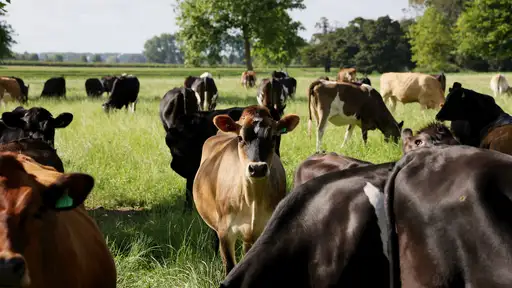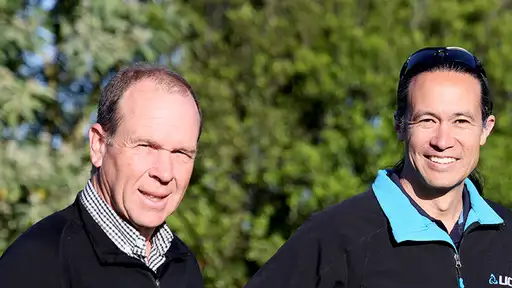This article featured in the 28 August 2019 edition of the Waikato Times.
Wayne McNee, LIC chief executive.
Stable milk prices for several years have given dairy
farmers some confidence, but thorny issues like climate change, environmental
constraints, water quality and animal welfare loom large.
These are big challenges but with them come some big opportunities, particularly for the Waikato. We have a real opportunity to leverage our position as a global leader in agritech to help farmers meet these challenges head on.
The Waikato is already a centre of excellence for agritech, with the most significant cluster of high-powered agritech companies in New Zealand, as Deloitte’s recent report ‘Shaping our Slice of Heaven’ points out. The fertile plains of the Waikato might have more in common with Silicon Valley than what people think.
Now though we have a chance to step up and through investment in innovation drive the next wave of productivity and sustainability improvements for farmers. We are going to need to work together to deal with those thorny issues and ensure that farmers can operate in a way that’s both sustainable and profitable in the long-term.
Today in New Zealand it’s increasingly clear we’re at ‘peak cow’. It’s a flash term to throw around but what it actually means is that if dairy farming is going to continue to drive our economy in the way it has for decades (which it must), the industry needs to find ways to farm differently. We need to find ways to farm smarter.
This starts with a shift from volume to value and requires taking full advantage of technology and data. The Waikato is well-placed to lead the way on this.
LIC, like other agritech businesses in the region, is exporting globally and growing fast. Today we are as much a data and tech company as we are a genetics company.
One of the biggest hurdles to growth we face is attracting and sustaining highly-skilled tech talent. We already have one of the country’s largest in-house technology teams at 110 people, and we’re constantly looking to fill high value jobs like data and research scientists.
Agribusiness is forecast to grow by $500m in GDP and 1,400 jobs by 2040. To get to this point, we’re going to need a sustained and coordinated attempt across government and industry to attract talent to the region and address skill development.
Equally, industry needs to work more closely with polytechs and universities to showcase what agritech roles are on offer and make sure we’re getting the talent pipeline we need.
If you pursue a career in agritech today you’re likely to end up working with some of the hottest tech out there – from robotics, to satellites to machine learning technology - yet many young people still see primary sector companies as stuck the dark ages. It’s up to us to change that.
The Waikato has a lot to offer over bigger centres – a great lifestyle and cost-of-living savings. But to attract superstar talent to the region we need more than this. We need better infrastructure, better connectivity, and improved transport links to allow for commuting. We need more housing.
As the most important region for agritech in New Zealand, the future of high-tech farming and with it New Zealand really is in Waikato’s hands. We need to make sure we have the right talent and plan to stay ahead of the innovation curve so we can deliver. The question is are we up for the challenge?




